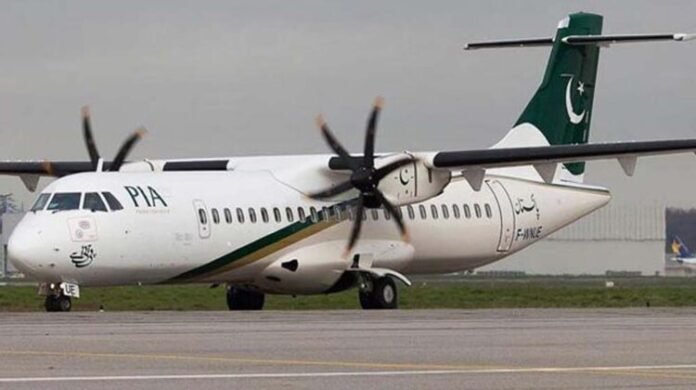ISLAMABAD: As Pakistan International Airline is going through an overhaul before privatization, the National Assembly’s Standing Committee on Planning, Development and Special Initiatives has expressed serious concern over the shrinking fleet of Pakistan International Airlines (PIA), revealing that the national carrier currently has only two ATR aircraft operational.
The standing committee chaired by Syed Abdul Kadir Gillani, met in the Parliament House to review multiple public-interest issues, ranging from aviation and infrastructure to donor-funded projects and disaster management.
During the meeting lawmakers warned that PIA’s inability to maintain adequate regional connectivity is creating hardships for the traveling public, particularly on southern routes. Members stressed that with just two ATRs available, flights on essential domestic routes have become severely limited. The committee urged PIA to immediately consider initiating flights on underserved routes such as Multan–Quetta and emphasized that expansion of the airline’s fleet must be treated as a top priority, especially in light of ongoing privatization efforts.
“The people of southern Punjab and Balochistan are suffering due to lack of air connectivity. PIA must expand its fleet and restore flights to smaller cities without delay,” observed members during the meeting.
In northern side there is only Islamabad to Gilgit route where ATR is flying for passengers as other airlines cannot travel on this route for being the airport in Gilgit small.
Apart from the PIA issues, the committee also followed up on the Multan LPG blast incident, acknowledging the submissions made by the Chairman of the Oil and Gas Regulatory Authority (OGRA) and appreciating the compensation mechanism extended to the victims. However, it directed that all compensation data be cross-verified to ensure accuracy and transparency.
The parliamentarians were briefed on ongoing engagements with the World Bank Group, under which 55 projects are currently being implemented in Pakistan. Lawmakers expressed frustration that elected representatives are not adequately involved in the planning and prioritization of these donor-backed schemes. They pointed out that projects are often routed directly through provincial governments, bypassing parliamentary oversight. The committee unanimously decided to summon officials from the Planning and Development Departments of Punjab and Sindh for an exclusive briefing on such projects. Members noted with concern that urban development sectors are being overlooked in donor assistance allocations and called for stronger parliamentary involvement in deciding project priorities. They also resolved to review the status of the Integrated Flood Emergency Project in Balochistan in detail.
During the meeting the performance of the Sub-Committee on projects inherited from the erstwhile Public Works Department (PWD) also came under scrutiny. Members complained that despite repeated budget allocations, funds continue to lapse without tangible progress on the ground.




